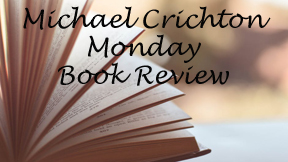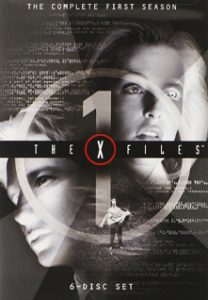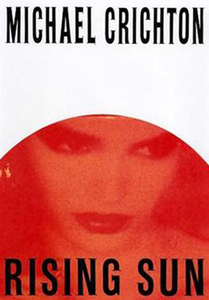I was ambivalent about reading “Rising Sun” (1992), since I’m mainly into Michael Crichton for his sci-fi works. But I found it thoroughly engrossing as he mixes a hardboiled L.A. murder mystery with insights into Japanese corporations and culture. And I mean a lot of insights. Los Angeles investigator John Connor (yes, the same name as the “Terminator 2” hero, but I got used to it) takes every opportunity to explain to second-in-command Peter Smith (our point-of-view narrator) the numerous ways – subtle and blatant – that Japanese business practices differ from America’s.
Trade talk
It’s almost a lecture more than a murder investigation. But it’s a fascinating one. Granted, this is Crichton’s personal view about Japanese purchases of American corporations in 1992. He fears Japan will soon effectively own America, and when someone owns something, they can do with it as they please; that’s not a position Americans will want to be in. Nearly 30 years later, were his fears warranted? What would Crichton think if he were still alive?
Whether outdated or still prescient, “Rising Sun” picks apart the nature of corporate operations in Japan, in America, and how the legal systems of each country approach corporate buys and international trade. It’s unquestionably a smart novel.

“Rising Sun” (1992)
Author: Michael Crichton
Genres: Murder mystery, international trade politics
Setting: Los Angeles, 1992
On the other hand, Crichton brushes past the consumers’ point of view. He acknowledges that American consumers benefit from access to affordable, quality technology. That’s ever-apparent today. I drive a Honda and I look around my apartment and see Samsung and Panasonic appliances I’ve had for years or decades without seeing them break down.
The author does note that Japanese tourists purchase Japanese cameras in New York because they are so much cheaper than in Japan, which outlaws foreign competition. On the other hand, he says Japan’s wealth gap between rich and poor is the narrowest of any nation.
As Crichton, via Connor, rips the corrupt U.S. government (but also naively relies on it to set things right) and criticizes Japanese behavior (but also understands and admires it), there’s a lot to wrap your head around in “Rising Sun.” But it’s written crisply and clearly.
Smooth transition from sci-fi
Structurally, “Rising Sun” is like the John Lange novels, but written by someone who has immeasurably improved since then. A Lange novel would have this plot but lack the commentary, and it would feel thin. Incongruously, the sidebars make the mystery more propulsive. It also helps that Crichton uses a proto-“24” approach wherein this whole tale takes place in three days.
This is a deceptively good character piece, even though no one grows or changes much. Connor mansplains throughout, and Peter always defers to him, but Connor is one of those guys who is confident and always correct, so he’s rather fascinating.

Meanwhile, Peter’s problems are relatable; he just wants to work his job without being pulled into the corruption all around it. And he wants to keep custody of his daughter while his deadbeat ex-wife makes a play for her because of complex reasons of intrigue and optics.
Cultural observations
“Rising Sun” is not only about politics, corporations and trade, but also about culture. Crichton makes a case that Japan is the most bigoted nation on Earth, and this is especially illustrated via Theresa Asakuma, a one-armed, lower-class, half-black Japanese who is thrilled to be in America, even with all the problems here. Her skills in video-imaging analysis can lead to advancement, and she’s not treated as a second-class citizen.
Like many issues in “Rising Sun,” Crichton has a “but also …” caveat. He notes that Japan is historically open to changing its identity. It quickly moved from feudalism to democracy, and also quickly learned from its mistakes in World War II, opting to play out wars via trade rather than military.
“Rising Sun’s” view of Japan might be dated (it’s certainly not the popular view anymore), and its view of technology is also firmly set in 1992, but again in a fascinating way. The book’s obsession with car phones – and how, unlike landlines, they can’t be traced — is worth a smile.
Cutting-edge (at the time) technology
More interestingly, Crichton tells us that videos and photos soon won’t be admissible in court because they are so easily manipulated, but they are still used (at least as circumstantial evidence) to this day. The story of how the cover-up team alters a video of the murder in a short time period is stunning (and the most implausible aspect of the novel), even if it happened today. But it’s something to think about.
“Rising Sun” is critical of Japan, yet the author’s effort to learn so many details about the Land of the Rising Sun shows a certain love for it. Critics who absurdly dismissed Crichton as racist missed out on his strong argument (whether you agree with it or not) against a one-direction trade policy.
I wished Crichton would’ve included more about the consumers’ POV. And by the time the book reveals the murderer, the explanation is so twisted that I didn’t even try to line it up in my brain. But I loved the experience of reading “Rising Sun,” the very definition of entertaining homework.

